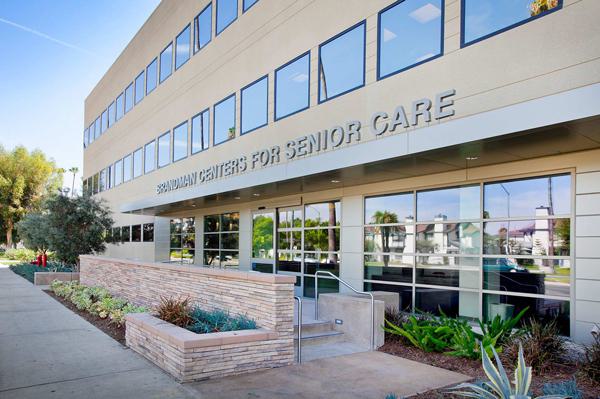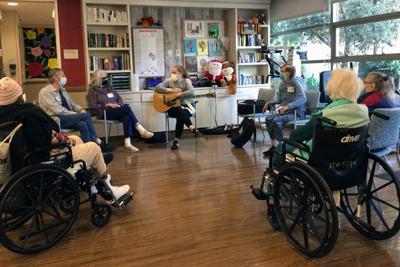When It Comes to Serving Seniors, Los Angeles Jewish Health Keeps Up the PACE


When It Comes to Serving Seniors, Los Angeles Jewish Health Keeps Up the PACE

Life expectancy in the United States is on the rise. As Americans live longer, older adults are increasingly searching for ways to age in place—and to remain in their own homes for as many years as they can. Enter the Brandman Centers for Senior Care (BCSC), a Program of All-inclusive Care for the Elderly (PACE). Launched by Los Angeles Jewish Health and generously funded by Joyce and Saul (of blessed memory) Brandman, BCSC immediately distinguished itself as the San Fernando Valley's first PACE program. Today they serve 320 senior participants, providing them a one-stop shop for meeting their comprehensive health needs.
The Brandman Center's primary objective is to help seniors remain as independent as possible, living safely in their homes and communities. It works to achieve this goal through the provision of well-coordinated, highly-personalized, quality care, with a broad range of services that promotes seniors' health and fills their days with meaning and joy.
"Our offering truly is all-inclusive, covering everything from medical care, specialty services, and rehabilitative care, to nutritional counseling, nursing and preventive services, medications, medical supplies, and more," says Susie Fishenfeld, BCSC executive director. "One of the best parts is that participants never get a bill; as long as they use our providers, we handle everything."
With an interdisciplinary staff that includes a primary care physician; medical specialists; a nurse; social worker; occupational, speech, and physical therapists; personal care attendants; and a dietician, BCSC is open five days each week, year-round (excluding holidays) from 8:30 am to 5 pm. Seniors become eligible when they are age 55 or older, live in the BCSC service area, and have been deemed by the team at BCSC and the California Department of Health Care Services to require nursing home-level of care.
Unlike with regular health insurance, such as Medicare or MediCal, there is no specific enrollment period for BCSC's PACE program; seniors can sign up at any time. There are other key differences, as well.
"We provide more than just what people typically think of as 'healthcare,' like doctor appointments and prescriptions," Susie notes. "So often, seniors are just sitting home, watching TV all day; we actually get them out and bring them to our center, where there are all kinds of wonderful activities for them. To see how they thrive when they get here is really quite amazing."
Evelyn Frenkel, BCSC's director of marketing, agrees that, when it comes to BCSC, seeing really is believing. "We just had a large holiday gathering, with music and dancing," she says. "As people arrived, you could tell they were just lighting up inside. It was wonderful."

Part of what makes BCSC so dynamic is its diversity. "We have so many languages and cultures represented, and all religions," Susie says. "Forty percent of our participants are Hispanic. And the diversity goes beyond background: Some participants work; some drive. Everyone is at a different stage in life, yet they all come together to create this beautiful community."
The census at BCSC, which continues to grow, is now the highest since the program started in 2013—and talking to participants, it's easy to see why.
"I love all of the activities, I love the dancing and the music. I just love it all," says Rose Robinett, who has been coming to BCSC since 2016.
One of BCSC's most ardent fans was William Kreiling, a devoted participant who has since passed away. His expert summary of the prevailing sentiment about BCSC: "If you look all over LA, you are not going to find a better organization than this one."